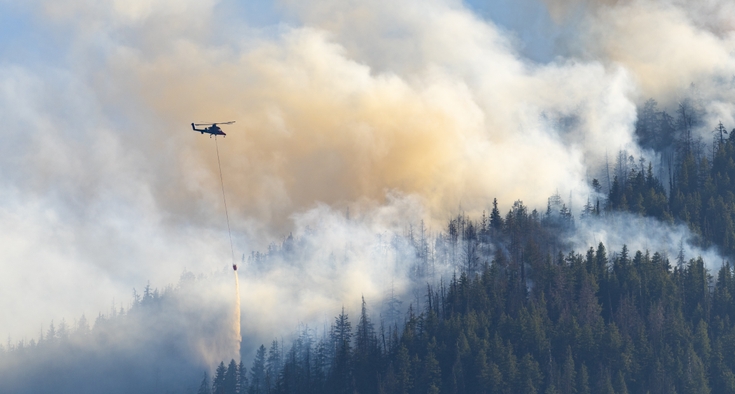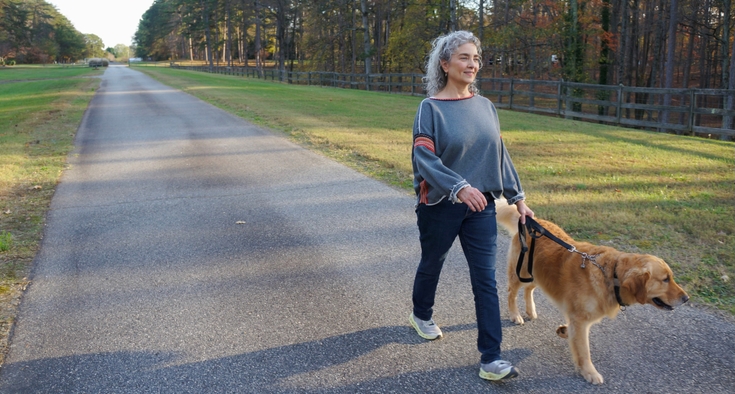Wildfires now large enough to see from space are consuming large, forested swaths in the mountains of western North Carolina. Officials have issued evacuation orders for some communities while others are waiting to find out if they need to leave.
As of Thursday, the affected areas were Polk, Henderson and Buncombe counties. In neighboring South Carolina, Pickens and Greenville counties were battling blazes as well.
Here are some key steps to consider if you’re facing possible evacuation. If there’s even a remote possibility you’ll have to leave, start planning immediately. Pack a “go bag” of items you know you’ll need.
Know your local evacuation route.
Download the Federal Emergency Management Agency app and sign up for your community’s wireless emergency alerts, which detail evacuation orders. Keep your phone charged and bring along portable chargers. Find Red Cross shelters here.
If you feel at risk, don’t wait for an evacuation order to leave.
Find mental health care and resources.
For help finding the right care for you or your loved one or answers to your questions, call the Novant Health 24-hour toll-free mental health program access line: 1-800-718-3550
Licensed therapists are available to provide you with answers and support when you need it.
You have 5 minutes to leave: What to grab?
- Wallet/purse.
- We all remember our phones, but the chargers are key.
- Prescription medications, see below.
- If you keep key documents like birth certificates and passports in one place, make sure to grab them.
- Take quick videos or photos of your property for insurance purposes.
- Flashlights are handy in all situations, even if you’re heading to a hotel or friends/family. A few tools like a screwdriver and a pair of pliers can help in a lot of situations as well.
- Pet supplies, like leashes for your dogs. You’ll need them in unfamiliar situations. Carriers are best for cats when hitting the road.
Steps to take outside your home.
- Bring flammable items inside, when possible.
- Shut off grill propane tanks and move them away from the house.
- Keep your outside lights on so your house can be seen in dark or smoky conditions.
Prescription medications are key.
More than 131 million people – 66% of all adults in the U.S. – use prescription drugs. But finding a pharmacy to refill them can prove an impossible task during an emergency. For this reason, it’s best to pack a month’s worth of medication before evacuating your home.
If you’re close to running out, contact your doctor’s office and ask them to send a prescription to a pharmacy close to where you’re staying.
Evaluate your family’s oxygen and insulin needs. This might mean having a backup oxygen tank or a portable concentrator ready in case of power outages. Also make sure to keep insulin cool and out of direct sunlight, but never freeze it. Ask your doctor if it’s OK to switch insulin types in a pinch.
Ask for help when you need it.
Stress and anxiety affect so many of us, and an emergency situation can almost certainly exacerbate those symptoms. Social media and constant news alerts can also fuel this discomfort.
During a natural disaster, it’s best to avoid alcohol, drugs and other stimulants known to affect your mood. Under stress, emotions can run high.
You can call or text the federal Disaster Distress Helpline (1-800-985-5990) for support. This is a government-run mental health service available 24/7.
Refresh yourself on using telehealth resources in an emergency.
Video visits are often a lifeline to medical support during natural disasters, especially when one disrupts access to in-person care. Telehealth does not require an appointment, and on-demand consultations are available around the clock from your phone or computer.
Novant Health patients can visit MyChart to schedule a virtual visit regarding something that is not life-threatening, like flu symptoms or back pain. Depending on the diagnosis, the clinician may refer the patient to primary or urgent care.











